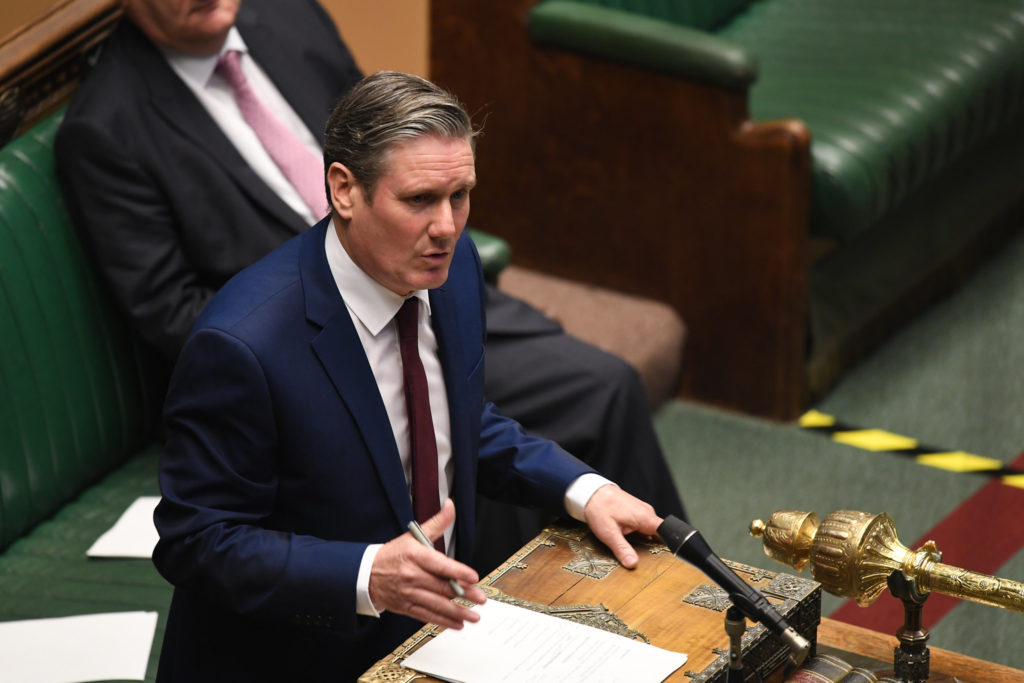Covid-19 Anniversary Blog

22/04/2020.. London, United Kingdom. First virtual PMQs and Ministerial statement on Coronavirus, with First Secretary of State Rt Hon Dominic Raab MP and the Leader of the Opposition Sir Keir Starmer MP. Picture by Jessica Taylor © UK Parliament
“It’s not what you say, it’s what people hear”, writes US Political Consultant Frank Luntz in Words that Work.
For Labour leader Keir Starmer, people are not hearing much.
All political leaders have to deal with the circumstances of their time. Some are gifted with a series of own goals by the other side – remember the sleaze stories about John Major’s Government? Others find themselves overshadowed by major events – remember, or maybe you don’t, Michael Foot during the Falklands War?
Since taking over as Labour leader during the earlier days of the pandemic, Starmer has struggled to get that magic factor – “cut through”. He may do all the things opposition leaders do, such as Prime Minister’s Questions, major speeches, policy announcements, party events. But even when these get attention, they fade quickly from our minds.
Part of Keir Starmer’s problem is the need to tread a difficult line. At a time of crisis people generally want the government to do well. Too much attack dog can rebound on the attacker; and he did begin by saying he would take a constructive approach.
But opposition leaders need to find points of difference. For a party to be a government in waiting there has to be something making the wait worthwhile.
Early 2021 saw an outbreak of media stories driven by what was obviously briefing by disaffected senior individuals. We read of worries about Starmer’s team, about his approach, about his lack of achievement. This came ahead of, and may in fact have played a part in, a speech trailed as carrying elements of a new Beveridge report. The contents of the speech however, did not live up to its billing.
And here is one of the problems. When there is lot of noise, you either need to make more noise to cut through or wait for a sudden pause for breath. You need to be nimble and to apply plenty of hype and you need to surprise. And if what happens is less than expected, cutting through in future is even harder.
Starmer is aware that he needs to choose his moments. His refusal to call for the resignation of Matt Hancock over NHS procurement transparency is a good example. He knows such a call would go unanswered and could look opportunistic, even though calling for Cabinet resignations used to be a reflex action by opposition leaders.
In late February, writing in the Times newspaper, Hugo Rifkind asked “What is the point of Sir Keir Starmer?” Rifkind felt there was not enough actual opposing going on. He may have a point, but if the efforts of figures such as Neil Kinnock have taught us anything, it is that opposition is a long game, and you may end up substituted before the win.
Paula Keaveney is programme leader for Politics at Edge Hill University.
This piece is written in response to a post originally published in the Covid-19 blog on 27th May 2020 by Paula which can be found here.
